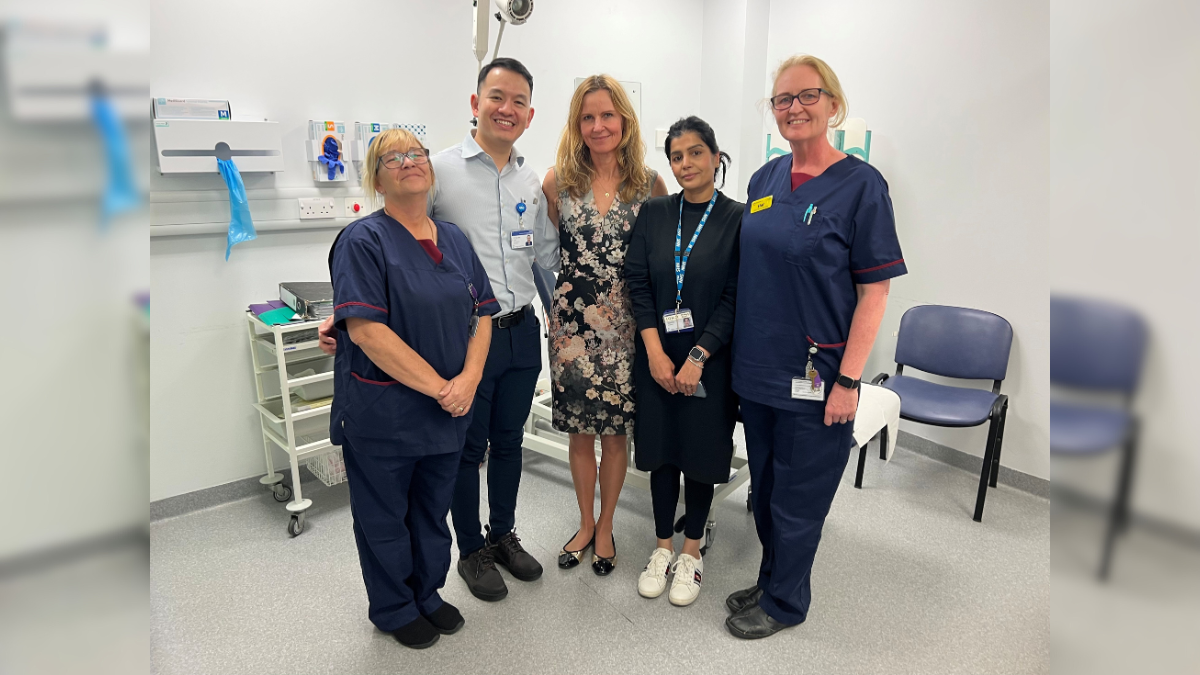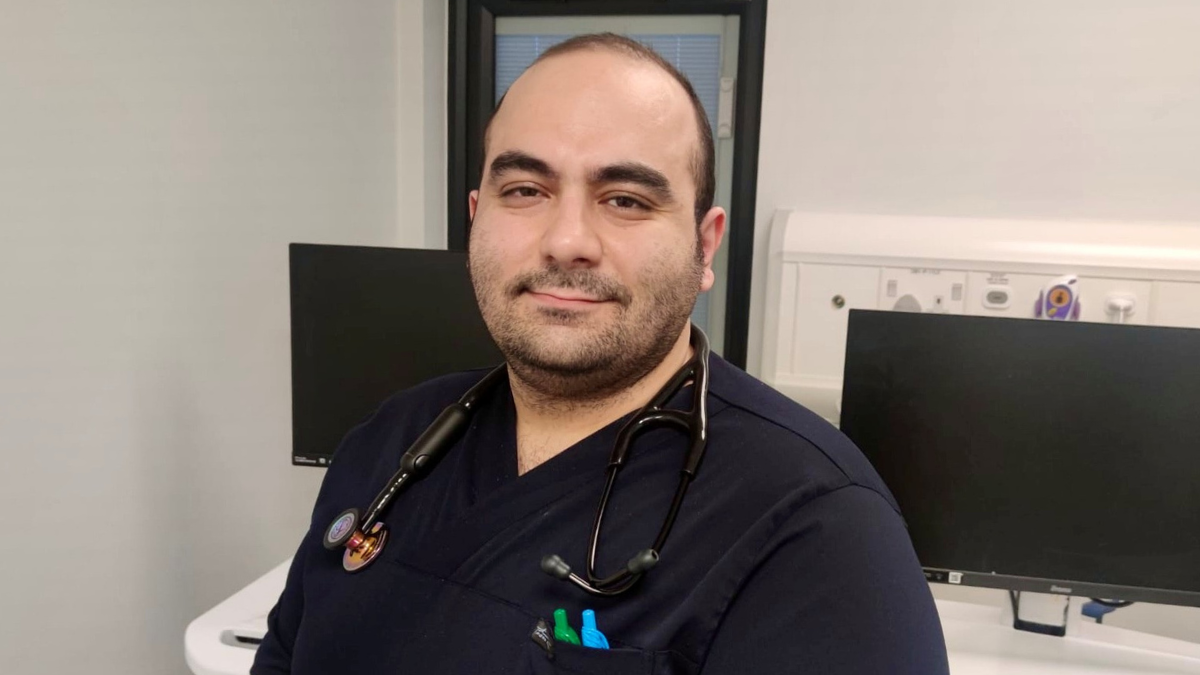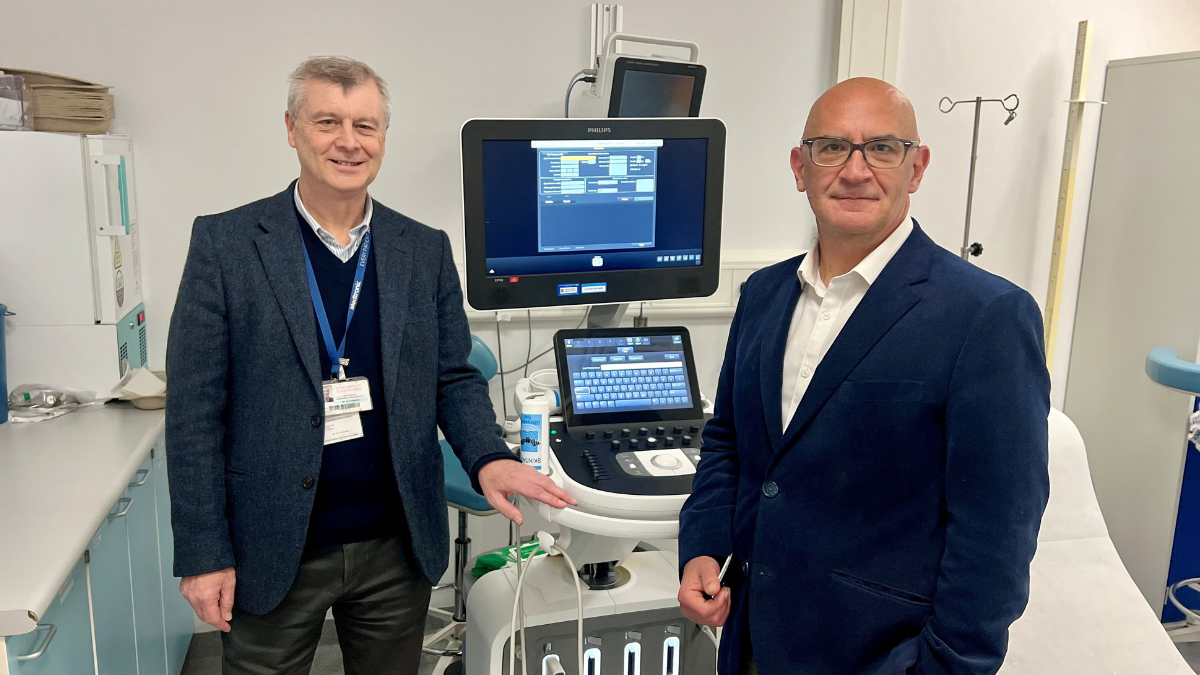Latest findings offer hope for patients with rare skin cancer
Published on 27/10/2025

Researchers at Queen Elizabeth Hospital Birmingham (QEHB), a leading centre for the PROCLIPI Study, have contributed to new findings showing that patients with Cutaneous (skin) T-cell Lymphoma (CTCL) experienced improved overall survival when treated with mogamulizumab, known by its brand name POTELIGEO.
CTCL is a rare type of cancer that begins in the white blood cells and affects the skin, causing rashes and slightly raised or scaly round patches. The most common types are mycosis fungoides and Sézary syndrome, with around 150 people diagnosed in the UK each year.
Cutaneous T-cell lymphomas can vary widely. Many people experience only a mild form that is not life-threatening and can be managed for years, while a smaller number develop a more serious form. Treatments may either target the skin directly, using creams, light therapy, or radiotherapy, or work throughout the body, given as tablets or injections that circulate in the blood to reach all areas.
POTELIGEO (mogamulizumab) is a prescription medicine given by injection into a vein and is used to treat mycosis fungoides or Sézary syndrome in adults whose disease has returned or who have not responded to at least one other treatment (oral or injectable).
Alexandra Mars, a 51-year-old patient at QEHB who has taken part in the study, said: “I have had tumour mycosis fungoides for over 10 years. I was most recently treated with mogamulizumab for two years and had no significant side effects. It appears to have put my disease to sleep, and I have not been on any medication since February. It is amazing to finally be able to have a break from treatment, which is so tiring, and not have to think about this disease.”
Now in its tenth year, the PROCLIPI Study is the largest international study of its kind, involving 2,547 patients across 19 countries. It collects information on tests, scans, treatments, quality of life, and survival from CTCL patients, with the aim of developing a tool (known as a prognostic index) to predict outcomes for people with the disease.
The latest research confirmed that patients with advanced-stage disease treated with POTELIGEO (mogamulizumab) experienced improved overall survival, with a median overall survival of 64 months compared to 54 months for patients who did not receive the treatment.
Professor Julia Scarisbrick, Consultant Dermatologist at QEHB and Chief Investigator of the PROCLIPI Study, said: “The PROCLIPI Study demonstrates the power of global collaboration in rare diseases. By bringing together data from across the world, we can generate insights that simply wouldn’t be possible in isolation.
“We are proud to coordinate this initiative here in Birmingham in partnership with Prof Kim at Stanford University, California, as we’re working to build rigorous scientific evidence while giving patients and their families a better understanding of what long-term survival looks like.”
Due to the rarity of CTCL and its wide variation in presentation and progression, enrolling patients in clinical trials can be challenging. Despite these difficulties, growing evidence is helping doctors understand which treatments may be most beneficial.
These latest research findings were presented in October at this year’s European Organisation for Research and Treatment of Cancer Cutaneous Lymphoma Tumour Group (EORTC-CLTG) Annual Meeting in Athens, Greece.


